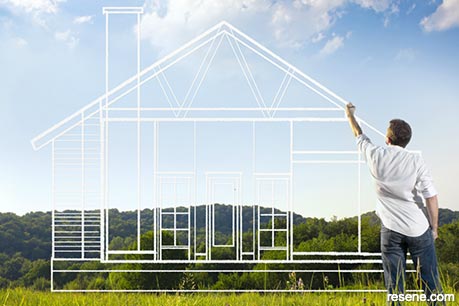From the Resene specifier blog
While adapting to climate change requires a holistic approach in terms of designing an entire house, there are other design features that are far more detailed. One of these is threshold drainage.

Designing properties requires no shortage of talent and eye for detail.
When it comes to residential properties, it's essential to strike the balance between beauty and practicality. It's now clear that concerns regarding climate change are also affecting the way properties are actually constructed, with sustainable materials becoming increasingly popular.
You'll want to be aware of the latest trends in building design. While adapting to climate change requires a holistic approach in terms of designing an entire house, there are other design features that are far more detailed. One of these is threshold drainage.
Stormtech's Meet the Threshold white paper explains threshold drainage and its usefulness in residential property.
Before homeowners get a chance to decorate their property with gorgeous paint shades and bright artwork, the more detailed aspects need to be taken care of.
Threshold drainage has been around since the 1990s and was first developed for special needs access, according to Stormtech.
The level-plane drainage system seamlessly integrates indoor and outdoor living spaces, reducing the risk of wheelchairs catching between partitions.
However, the application has since been applied to many homes, with threshold drainage being seen as more than a practical solution. It's now an aesthetically-pleasing choice and is used in many contemporary home designs.
For those who are dedicated to designing homes with seamless indoor-outdoor flow, this kind of drainage may be a great option.
"The increasing popularity of open-plan living is dissolving the traditional barriers between indoor and outdoor spaces," explains Stormtech.
"In the push to harmonise these once discrete environments, designers must find creative ways to integrate practical building elements seamlessly into the design fabric."
Climate change, adverse weather conditions and energy efficiency are all contributing to a new way of thinking about home design, according to UBIQ's New House Rules: The Impact of Climate Change on the Way We Build.
That's not to mention demand for high sound resistance, according to UBIQ. For homeowners who are fans of at-home entertainment, this will certainly be a big factor that will influence their home building decisions.
"Traditional materials used for wall cladding and flooring, such as timber, concrete and plasterboard, provide solutions for some of these problems but none provide solutions to all," explains UBIQ.
However, innovative new construction materials made from low carbon fibre technology are proving to be a novel solution to all these issues.
Floor, wall and weatherboard products are all available, UBIQ notes. Not only are these materials easy to install, high-strength and lightweight, but they're also an environmentally sound option.
Some types of board have stronger acoustic attenuation than regular plasterboard, too.
While there are plenty of design challenges to work through, it's certainly promising that so many great solutions are on the market to make new homes better than ever. Once you've come up with a beautiful design, it's over to the lucky homeowner to explore exciting interior design ideas.
May 28, 2014
Resene is recognised as an innovator in colour and a manufacturer of quality paints. Resene combines extensive industry experience and expertise to support the delivery to property owners, managers and specifiers outstanding, cost-effective finishes and protection on their decorating projects.
Order A4 swatches | Order colour charts | Request a Rep visit | Ask a Paint Expert | Specifier and project services
Resene's specifier blog
Paint your projects beautiful. Discover the latest decorating trends, tips and colour news! Keep up to date with the latest industry news and research...
![]()
Previous «
Architecture trends to watch
![]()
Blog home
View the latest trends, tips and specifier news
![]()
» Next
The highest of heights: Design round-up